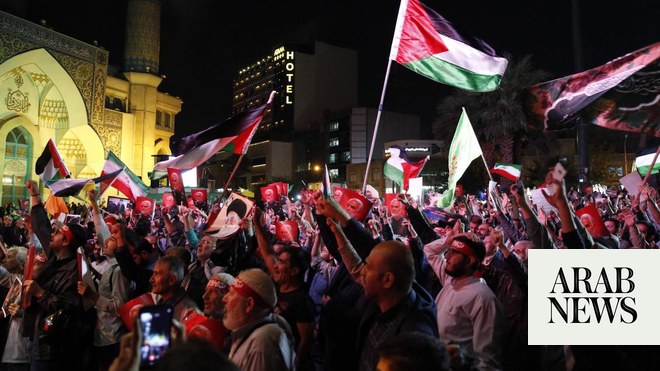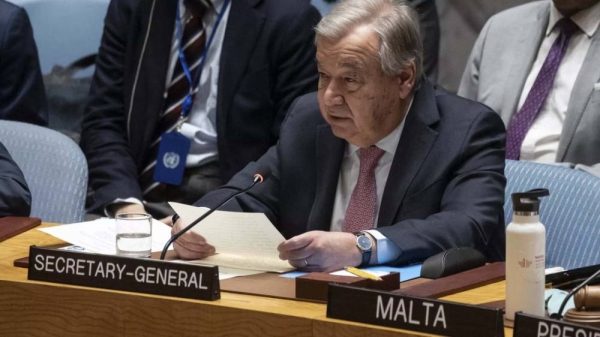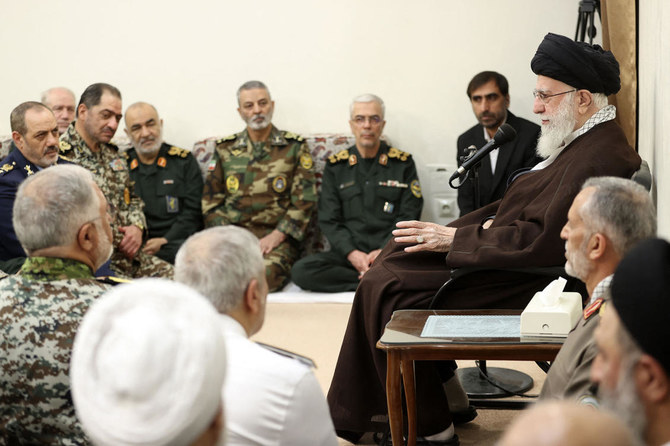
While celebrating the beginning of the new Iranian year, 1398, Supreme Leader Ali Khamenei and the country’s President Hassan Rouhani both addressed the people, with their speeches having several points in common. They both focused on Iran’s resistance economy and the need to challenge US sanctions through improving domestic production. They also focused on domestic unity and its importance in the face of external threats, along with the importance of Iranians being aware of deceptive foreign propaganda against their country.
Rouhani declared that those who despise Iran and live outside the country are responsible for Iran’s problems. He also asserted that Iran’s current structural problems date back to the pre-revolutionary era. He warned that these problems will have a substantial impact on the people and that poor management will worsen existing socioeconomic problems in the future.
However, he called on political factions to end their infighting and to unite against foreign enemies. He said: “Some might ask till when will these sanctions and problems go on… these problems began with the oath-breakers and those who have recently reached power in Washington, but the (key to the end) is in our hands.”
Rouhani added: “The more we are united and the more the enemy realizes that, with these sanctions, our nation becomes more cohesive, the sooner they will despair and regret. When the enemies see that Iran under sanctions managed to turn threats into opportunities, enforce structural reforms, increased the hours and quality of work, expanded the knowledge of firms, and boosted production and exports, the enemy will realize that it is the one who will be impacted by these sanctions. And this day will mark the end of the sanctions.”
The president also noted that the US once believed that its allies around the world would stand by it and the sanctions it imposed on Iran. But he said most countries have stood by the Iranian people and all international organizations, such as the UN, International Atomic Energy Agency and the International Court of Justice, have sided with Iran.
As for Khamenei, he said that the country’s main problem, especially in recent months, is economic, particularly related to living conditions, part of which have been caused by ineffective economic management. In addition, he said Iran faces several other critical economic issues, such as a plummeting national currency, declining purchasing power, and low productivity by factories, with many closing.
From the two speeches, it is clear that Rouhani has shifted to the side of the hardline conservatives
Dr. Mohammed Al-Sulami
Khamenei claimed that he had studied the matter, consulted experts and reached a conclusion that the solution to all these problems rests in boosting national productivity. He noted that Iranians will feel the positive outcome of these measures soon.
It did not, however, take long for Khamenei to reveal his innate tendencies by launching a scathing attack on Saudi Arabia due to the Kingdom’s plan to start a nuclear energy program.
From the two speeches, it is clear that Rouhani has shifted to the side of the hardline conservatives. Indeed, it may not be too great an exaggeration to say that Rouhani has outdone Khamenei (with the exception of the supreme leader’s attack on Saudi Arabia) in open hostility to Iran’s traditional opponents, especially after the president described the US and regional countries as “enemies,” possibly the first time he has made such hostile remarks in public.
While Khamenei’s speech focused mostly on Iran’s domestic problems and the need to resolve them, we find that Rouhani — even though he mentioned the problems — resorted to blaming foreign parties, accusing them of causing the crises that are gripping the country and claiming that a plot is being hatched against Iran. Such comments prove that the West’s bet on the so-called moderate reformists in Iran in recent years has paid little dividends. There is no difference between Khamenei and Rouhani when they are placed under domestic or foreign pressure.
To conclude, those who understand Iranian politics, its dynamics and its decision-making process are quick to realize that there is no difference between conservatives, reformists and moderates when it comes to foreign policy and national security issues. In reality, for any individual to reach the level of inclusion in Iran’s decision-making circles and to receive the approval of the Guardian Council, he must first show absolute loyalty to the principles of the “Islamic revolution” and the ideology of Wilayat Al-Faqih. Any differences, meanwhile, are confined to minor issues of interpretations and trivial details. The final say over these issues always lies with the supreme leader, the National Security Council and the Islamic Revolutionary Guard Corps, all of whom are fanatical adherents of the revolutionary theocratic doctrine pursued by Ruhollah Khomeini and his successor Khamenei.
• Dr. Mohammed Al-Sulami is Head of the International Institute for Iranian Studies (Rasanah). Twitter: @mohalsulami
Disclaimer: Views expressed by writers in this section are their own and do not necessarily reflect Arab News" point-of-view












